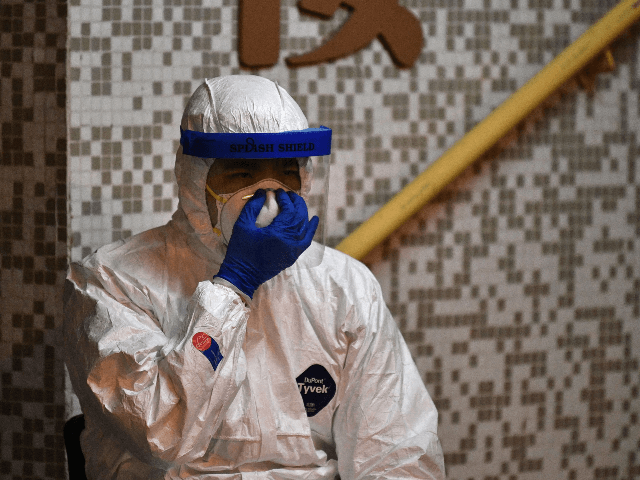The Epoch Times on Tuesday reported that China has “engaged over 1,600 censors to scrub the internet of ‘sensitive’ information relating to the coronavirus outbreak.”
The information control effort apparently accelerated after Chinese communist leader Xi Jinping emerged from relative seclusion and asserted himself as being in control of the coronavirus response.
The Epoch Times claimed to obtain an internal report drafted on February 15 by officials in Hubei province, epicenter of the virus outbreak. These officials were alarmed by criticism of the government and persistent speculation that the number of people sickened and killed by the virus was much higher than the government was willing to admit.
China’s infamous “50 Cent Army” of online trolls was accordingly deployed to wipe out troublesome social media posts and divert the Chinese public’s attention to inspiring stories about government officials and those fighting on the front lines against the coronavirus:
The trolls, through technological and manual screening, had identified as many as 606,800 posts online with “sensitive or harmful information,” it said.
Their approach, it said, was to “timely dispel the online rumors” and “strike powerful blows offline.”
As of Feb. 14, the online censors had deleted as many as 54,000 such “rumors,” and had social media influencers write nearly 400 commentary articles to shape the narrative.
The regime’s propaganda efforts, the report said, should be directed toward promoting the effects of officials’ outbreak control measures and the “moving deeds” of volunteers, community workers, and the police.
Some professional “internet commentators” had also made 400,000 comments to “counter the negative public opinions,” according to the document.
The censors were particularly effective at erasing public expressions of anger over the death of Dr. Li Wenliang, the whistleblower who was himself persecuted for “spreading rumors” when he warned about the danger posed by the coronavirus in the early days of the outbreak, long before the government was willing to admit those dangers. Grief and anger over Li’s death from the virus was erased almost as quickly as it could be posted online, replaced by government-approved celebrations of Li as a hero and martyr of the Chinese Communist Party.
Securing a monopoly on coronavirus information required chasing foreign media out of Hubei, a project viewed as highly successful in the report. As of this week, only five media organizations from beyond China still had reporters on the ground in Hubei.
Chinese citizens, meanwhile, have been terrorized into silence with threats of prosecution for “spreading rumors” or “spreading fake information,” nebulously-defined crimes that can carry sentences of up to seven years in prison. Hundreds of arrests have been made for “spreading rumors” according to human rights groups, many of them involving online posts that were demonstrably accurate.
The document viewed by the Epoch Times allegedly specified that Hubei propaganda groups are working closely with the central government in Beijing to “coordinate public opinion,” both “inside the country and overseas.”
Information control is particularly important now that the regime in Beijing is attempting to portray the coronavirus epidemic as completely under control and likely to end within a few weeks, and the official new Party narrative is that Xi and other top officials responded quickly to the threat but were frustrated by poor compliance with their orders from inept Hubei officials.
The death toll is now over 2,000, but Chinese officials claimed the rate of new infections began slowing this week, eager to persuade the rest of the world to begin lifting travel bans that have inflicted tremendous costs on the Chinese economy.
The World Health Organization (WHO), which has been very careful to avoid antagonizing China, sounded a rare note of disagreement and said the optimistic Chinese reports “must be interpreted very cautiously.”
On Wednesday, the Chinese government expelled three journalists from the Wall Street Journal over an op-ed piece published by the paper – but not written by any of the three journalists – that Beijing considered “racist.”
The article in question, written by foreign affairs and humanities professor Walter Russell Mead of Bard College, referred to China as the “real sick man of Asia” – a phrase coined by Russia’s Tsar Nicholas I to describe the fading Ottoman Empire as the “sick man of Europe” in the 19th Century. The phrase has been used by numerous authors and historians to describe other troubled powers around the world since then.
The thesis of the article that so enraged Beijing was that local officials responded to the virus in a “secretive and self-serving” manner, shaking confidence in the Chinese Communist Party “at home and abroad” badly enough to threaten the Chinese economy.

COMMENTS
Please let us know if you're having issues with commenting.